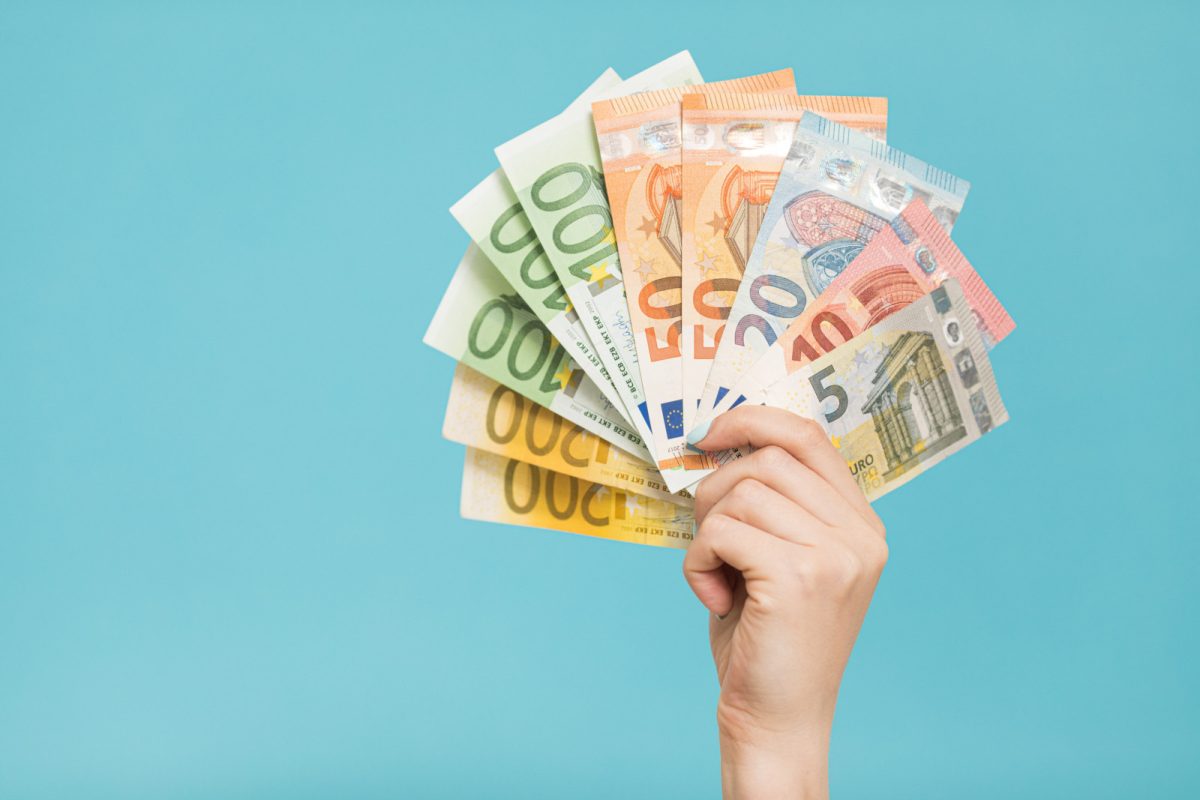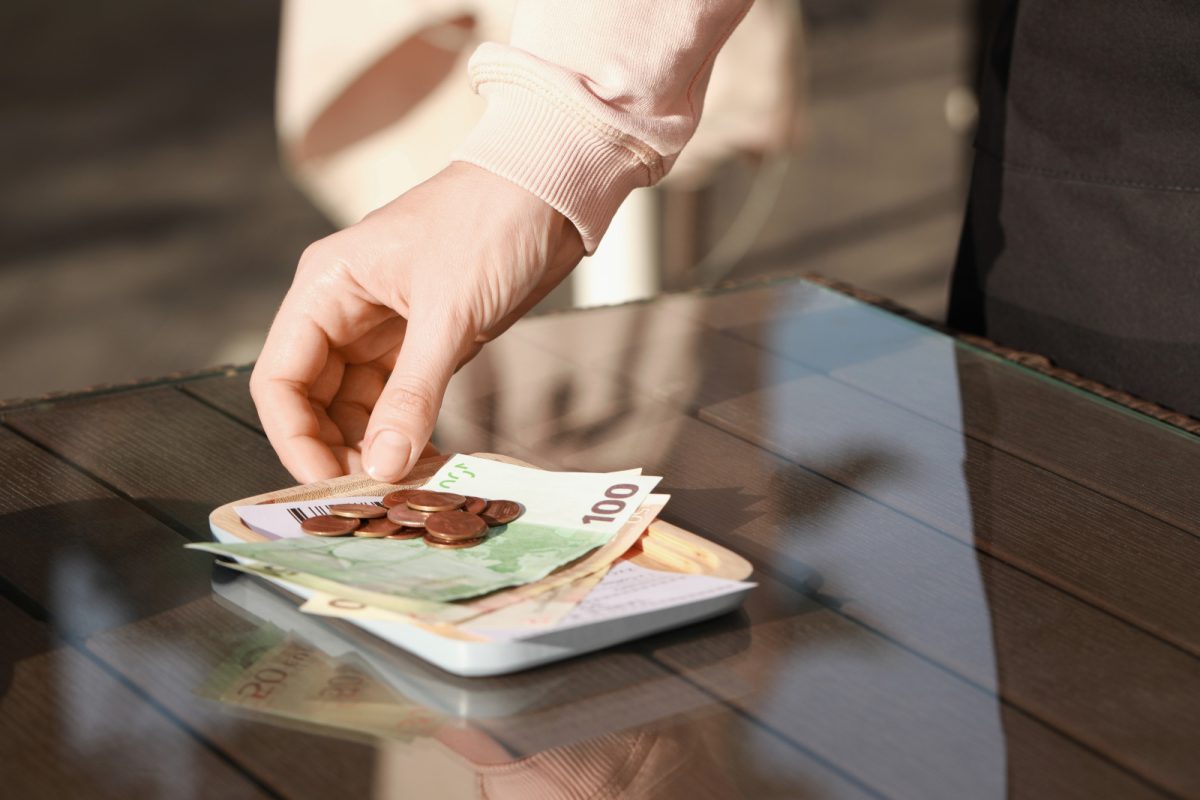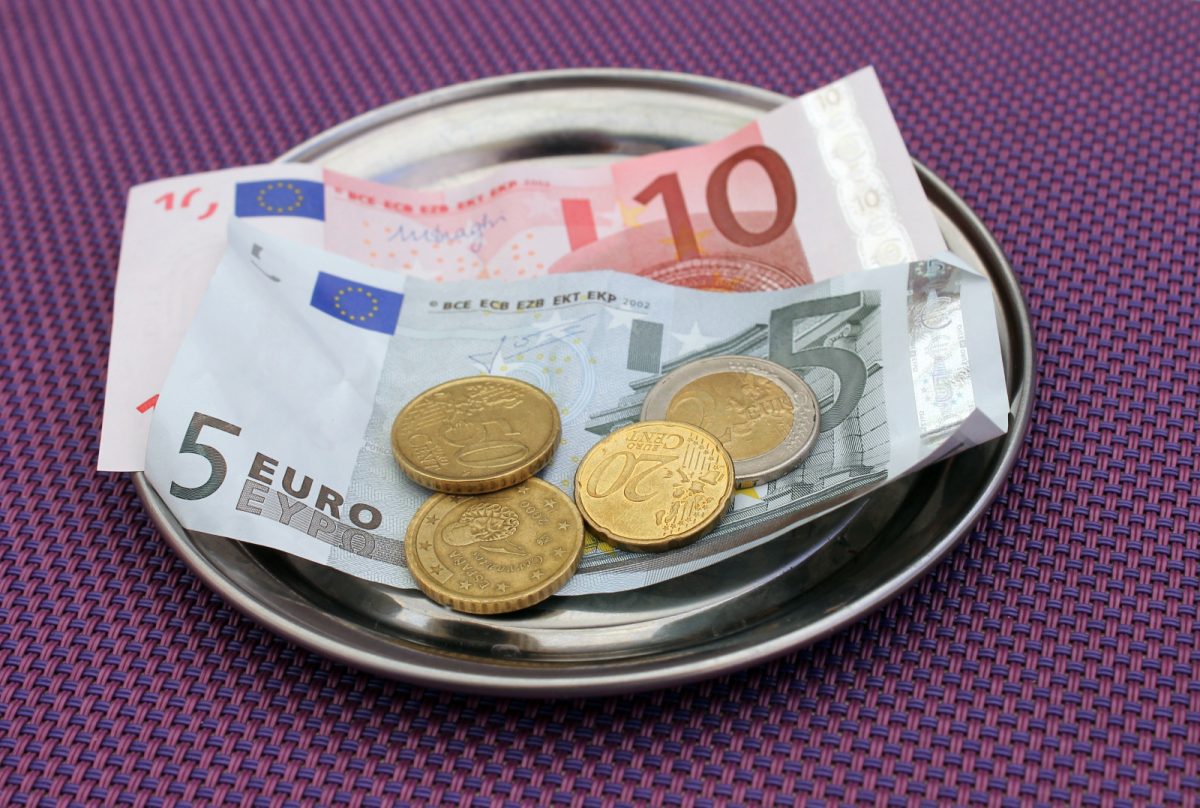Tipping in Italy can differ slightly from what you might be used to in other countries. Tipping is not obligatory in Italian restaurants but is appreciated when service exceeds your expectations.
Typically, you round up the bill or leave a few euros rather than the 15-20% often expected in other parts of the world. For instance, if your meal totals €52, leaving €55 is a nice gesture.
Again, tipping customs are straightforward but different when staying in Italian hotels. Housekeeping staff appreciate small tips, about €1-2 per day.
If a porter helps with your luggage, offering about €1 per bag is polite. These small amounts show your appreciation for their service without feeling like a significant extra expense.
Tipping is subtle for additional services such as taxi rides and bar services. You might round up the fare or leave an extra euro. For example, if your taxi ride costs €13.10, rounding up to €14 is customary.
In bars, leaving coins or rounding up your drink bill is considered. These practices ensure your gratitude is acknowledged while respecting the local tipping culture.
Tipping in Restaurants
If you’re unfamiliar with the customs, navigating tipping practices in Italian restaurants can feel overwhelming.
By understanding the various charges and traditional practices, you can ensure you tip appropriately and avoid common mistakes.
Understanding the Service Charge

In many Italian restaurants, a service charge, known as “servizio”, might be added to your bill. This fee generally covers service responsibilities such as setting up your table and providing basic service.
A “coperto” fee might also appear, a small charge for bread and cover. Be mindful that this is not a tip.
You might see these charges listed on the menu, particularly in tourist-heavy areas. Always check your bill for “servizio incluso” to see if the service charge is included.
How Much to Tip: Guidelines

If the service charge is not included in your bill, a tip of around 5-10% is appreciated for good service. You can leave your tip in cash on the table or hand it directly to the waiter.
For a simple espresso or aperitivo, rounding up the bill or leaving a small coin is sufficient. When dining in higher-end establishments, slightly higher tips may be appropriate, reflecting the level of service and meal quality.
Local Customs and Expectations

Tipping is less formal in Italy compared to the United States. Italians often round up the bill or leave small amounts of change rather than a percentage-based tip. This practice ensures that your appreciation for the service is noted without seeming excessive.
Owners and waiters may not always expect a tip, especially in family-owned and operated restaurants. Expressing gratitude verbally can also go a long way. A sincere “Grazie!” can sometimes be as valued as a monetary tip.
See Related: How to Experience Italy Like a Local
Common Mistakes to Avoid

Avoid double-tipping if “servizio incluso” has already been added to your bill. Always double-check the bill for this line item.
Don’t overdo the tipping by leaving excessive amounts. Tipping modestly aligns better with local customs and shows cultural sensitivity.
Be cautious of using credit cards for tips, as some restaurants may not pass the gratuity on to the staff. Whenever possible, leave cash tips to ensure they directly reach your server. By adhering to these guidelines, you can tip in a way that aligns with Italian customs and shows your appreciation for the service received.
Tipping in Hotels
Tipping practices in hotels in Italy vary depending on the type of accommodation and service received. Your generosity can enhance the experience for both you and the hotel staff.
Tips from Locals

Italian locals suggest tipping certain hotel staff members for their services. Typically, you might give the doorman €1 for calling a cab and the bellhop €2-€3 for carrying your luggage. Housekeeping staff often receive €1 per day, which you can leave on the counter or the bed with a note.
Concierges assisting with special requests, such as making restaurant reservations, generally appreciate a 15% gratuity for their service. While tipping in smaller hotels or bed and breakfasts is not standard, it is still appreciated for exceptional service.
Tipping for Services
Tipping practices for services like taxis and tours in Italy can vary. Knowing the nuances can help ensure you show your appreciation appropriately.
Taxis, Tours, and Beyond

Taxis: In Italy, it’s common to round up the fare as a tip for taxi drivers. For example, if your fare is €18, you might pay €20. This small gesture is appreciated.
Tour Guides: For private tours, tipping your tour guide is customary. A tip of €10-€20 for a half-day tour or €20-€30 for a full day is standard, especially if the service was exceptional and the guide was particularly friendly and informative.
Additional Services: Other services like Uber or Free Now rides typically follow similar tipping practices to taxis. For baggage handling by hotel staff, tips in coins (like €1-€2 per bag) can go a long way in expressing gratitude. By practicing these tips, you can ensure that your appreciation for any service is accurately and respectfully conveyed.
See Related: Navigate Italy Like a Local: How to Master Public Transportation
When Not to Tip

In Italy, tipping (la mancia) is not always necessary and can sometimes even be inappropriate.
- Service Charges and Cover Charges: Many restaurants include a
service chargeorcover charge(coperto) in the bill. This means that additional tipping is not expected. Always check your bill to see if these charges are included. - Mandatory Charges: You don’t need to tip if you see a
mandatoryservice charge. This charge is meant to cover the service provided. Tipping on top of this is not typical and may be seen as excessive. - Casual Cafés and Bars: Tipping is not expected when you visit a casual café or bar. You can leave a few coins as a token of appreciation if you like, but it’s necessary. Staff in these establishments usually do not rely on tips.
- Taxi and Public Transport: In most cases, tipping is not customary for taxi drivers or other forms of public transport. If the driver helps with luggage or provides exceptional service, a small tip is appreciated, but it’s not required.
- Fixed Price Services: In hotels, if there are fixed price services like room service with added charges, additional tipping isn’t expected. The
service chargesalready cover the staff’s efforts. - Avoiding the Cheapskate Label: While generosity is admirable, understanding the local social etiquette ensures you do not seem out of place. Italians appreciate good service but do not expect tips as a rule. Following local customs shows respect.
Remember, tipping etiquette in Italy is different from that in other countries. Being aware of these subtleties ensures you enjoy your visit without any misunderstandings.
See Related: The Perfect 10-Day Italy Itinerary for Active Couples
How Much to Tip: Guidelines
Tipping practices in Italy differ from those in other countries. It’s crucial to understand local customs to avoid over-tipping or appearing rude. Generally, tipping is not obligatory but is appreciated when service exceeds expectations.
Service Quality and Gratuity

Tipping in restaurants varies based on the service quality and whether “servizio incluso” (service included) is on the bill. If included, you don’t need to tip more.
Leave up to 10% of the total bill if it’s not included. For example, for a €52 meal, rounding up to €55 is suitable.
At hotels, tipping is more common for personal services. Porters should receive €1-2 per bag while leaving €1-2 per night for the housekeeper is considerate. Concierge tipping depends on the complexity of the service rendered, with €5-10 being customary for assistance with reservations or tickets.
In cafés and bars, it’s common to leave small changes, such as €0.10-0.20, when paying for your coffee or drink at the counter. Bartenders may appreciate loose change, but be mindful that this is not expected.
A €1-2 tip is generally appreciated for valet services or assistance with parking. Leaving €5-10 is a nice gesture at spas if the service is exceptional.
Remember, tipping is seen as a reflection of your satisfaction with the service rather than an obligation. Exercising discretion and assessing the service quality will ensure your gesture is well-received.


0 Comment